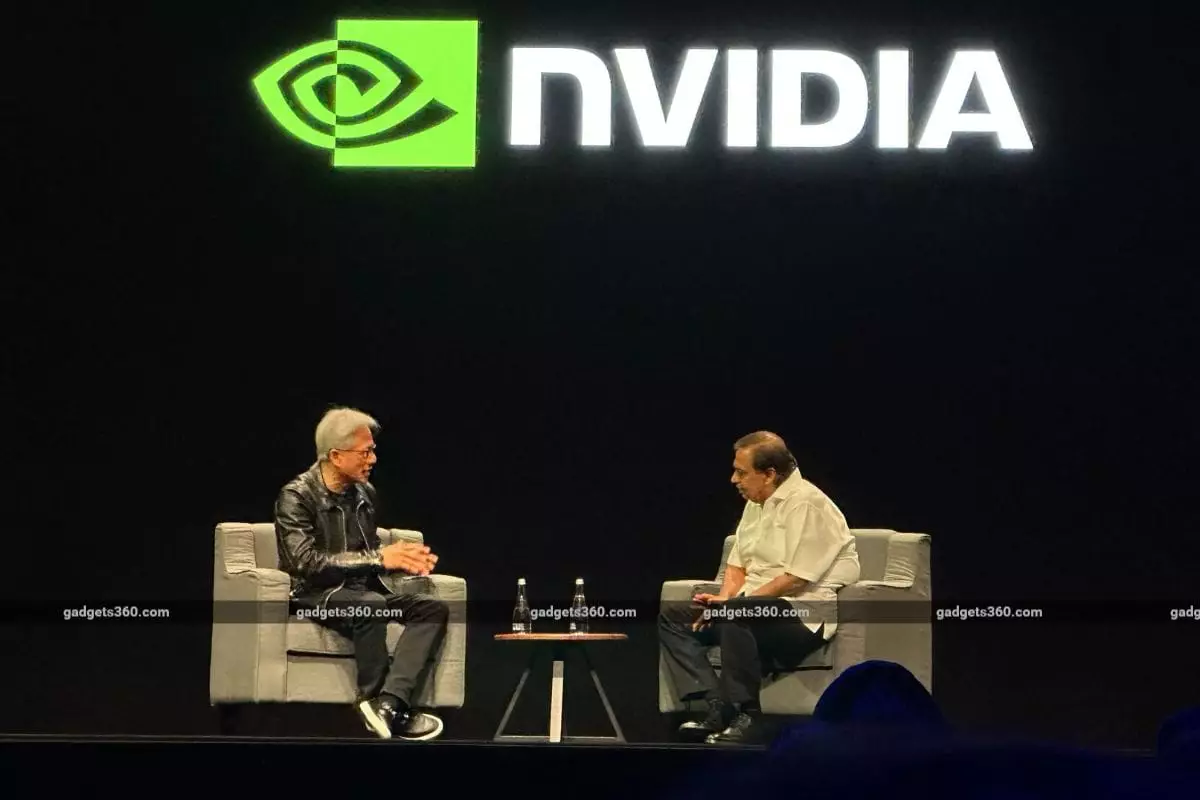In a recent address, Nvidia CEO Jensen Huang emphasized the importance of global collaboration in technology, particularly in the realm of artificial intelligence (AI). His comments come at a time when the U.S. government’s tightening export controls on high-tech products, particularly those involving AI, have raised concerns among tech leaders. Huang’s assertion that cooperation will continue reflects a broader sentiment in the tech industry: that the advancement of science and technology transcends national boundaries.
Huang mentions the historical significance of open scientific collaboration, asserting that this practice has been fundamental to human progress. He voiced optimism about the future relationship between countries in the technology sector, regardless of the political landscape. While acknowledging the potential for new regulations from the upcoming U.S. administration, Huang expressed confidence in Nvidia’s ability to adhere to these rules while continuing to innovate and serve a global customer base. This perspective underlines a critical nexus between compliance and technological advancement, a balance that many companies will have to navigate as geopolitical tensions persist.
The Dawn of an AI-Driven Era
During his address at the Hong Kong University of Science and Technology, Huang declared the commencement of what he terms “the age of AI.” This statement is more than just a proclamation; it highlights the transformative nature of artificial intelligence across various sectors. As the head of a company renowned for its innovations in GPU technology, Huang views AI as the driving force of a new industrial revolution.
He urged graduates and academics to recognize their unique position in this shifting landscape, suggesting that they are entering a field poised for unprecedented growth. Huang stated that AI is perhaps the most consequential technology of our time, potentially surpassing previous technological epochs in its impact. His vision paints an optimistic picture for the future, showcasing a landscape where the solutions to major global challenges become increasingly attainable through the advancements spearheaded by AI and machine learning.
The Next Generation of Innovators
Huang’s remarks also reflect a deep-seated belief in the capabilities of the next generation of innovators. He noted enviously that today’s graduates are at the forefront of a renewed technological landscape, equipped with tools to drive extraordinary advancements in science. This emphasis on empowering young minds underlines a vital aspect of technological development: the exchange of ideas and innovations that stems from academic and practical collaboration.
Furthermore, his characterization of the current moment as a reset of sorts implies a unique convergence of talent, technology, and opportunity—a trifecta that may very well shape the future of industries ranging from healthcare to entertainment. As he engages with the university community in discussions, Huang seeks not only to inspire but to instill a sense of responsibility among students regarding the role they play in this ongoing transformation.
Jensen Huang’s insights not only encapsulate the challenges posed by regulatory frameworks but also highlight the undeniable potential of AI as a unifying force in technology. As the industry evolves, fostering a culture of collaboration and innovation will be paramount to navigating the complexities of a globally interconnected world.


Leave a Reply